Business
Election ads are using AI. Tech companies are figuring out how to disclose what’s real. on November 16, 2023 at 11:00 am Business News | The Hill
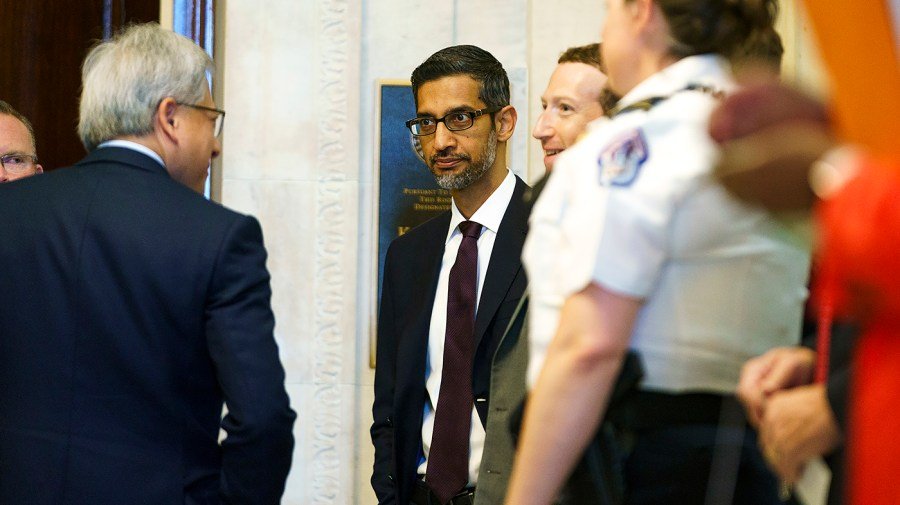
Meta and YouTube are crafting disclosure policies for use of generative artificial intelligence (AI) in political ads as the debate over how the government should regulate the technology stretches toward the 2024 election.
The use of generative AI tools, which can create text, audio and video content, has been on the rise over the past year since the explosive public release of OpenAI’s ChatGPT.
Lawmakers on both sides of the aisle have shared concerns about how AI could amplify the spread of misinformation, especially regarding critical current events or elections.
The Senate held its fifth AI Insight Forum last week, covering the impact of AI on elections and democracy.
As Congress considers proposals to regulate AI, leading tech companies are crafting their own policies that aim to police the use of generative AI in political ads.
In September, Google announced a policy that requires campaigns and political committees to disclose when their ads have been digitally altered, including through AI.
Google CEO Sundar Pichai speaks to college students about strengthening the cybersecurity workforce during a workshop at the Google office in Washington, D.C., on Thursday, June 22, 2023. (AP Photo/Jose Luis Magana)
What do campaigns and advertisers have to disclose?
Election advertisers are required to “prominently disclose” if an ad contains synthetic content that has been digitally altered or generated and “depicts real or realistic-looking people or events,” according to Google’s policy, which went into effect this month.
Meta, the parent company of Facebook and Instagram, announced a similar policy that requires political advertisers to disclose the use of AI whenever an ad contains a “photorealistic image or video, or realistic sounding audio” that was digitally created or altered for seemingly deceptive means.
Such cases include if the ad was altered to depict a real person saying or doing something they did not, or a realistic-looking event that did not happen.
Meta said its policy will go into effect in the new year.
Robert Weissman, president of the consumer advocacy group Public Citizen, said the policies are “good steps” but are “not enough from the companies and not a substitute for government action.”
“The platforms can obviously only cover themselves; they can’t cover all outlets,” Weissman said.
Senate Majority Leader Chuck Schumer (D-N.Y.), who launched the AI Insight Forum series, has echoed calls for government action.
Schumer said the self-imposed guardrails by tech companies, or voluntary commitments like the ones the White House secured by Meta, Google and other leading companies on AI, don’t account for the outlier companies that could drag the industry down to meet the lowest threshold of regulation.
Weissman said the policies also fail to address the use of deceptive AI in organic posts that are not political ads.
Several 2024 Republican presidential candidates have already used AI in high-profile videos posted on social media.
How is Congress regulating artificial intelligence in political ads?
Several proposals have been introduced in Congress to address the use of AI in ads.
A bill from Sens. Amy Klobuchar (D-Minn.), Josh Hawley (R-Mo.), Chris Coons (D-Del.), and Susan Collins (R-Maine) introduced in September would aim to ban the use of deceptive AI-generated audio, images or video in political ads to influence a federal election or fundraise.
Another measure, introduced in May by Klobuchar, Sens. Cory Booker (D-N.J.) and Michael Bennet (D-Colo.), and Rep. Yvette Clarke (D-N.Y.), would require a disclaimer on political ads that use AI-generated images or video.
Jennifer Huddleston, a technology policy research fellow at Cato Insitute who attended last week’s AI Insight Forum, said the requirement of disclaimers or watermarks was raised during the closed-door meeting.
Huddleston, however, said those requirements could run into roadblocks in instances where generative AI is used for beneficial reasons, such as adding closed captions or translating ads into different languages.
“Are we going to see legislation constructed in such a way that we wouldn’t see fatigue from warning labels? Is it going to be that everything is labeled AI the same [way] everything is labeled as a risk under certain other labeling laws in a way that it’s not really improving that consumer education?” Huddleston said.
Senate Rules and Administration Committee Chair Amy Klobuchar (D-Minn.) speaks during a business meeting to consider S.R. 444, providing for the en bloc consideration of military nominations.
Misleading AI remains a major worry after last two presidential elections
Meta and Google have crafted their policies to target the use of misleading AI.
The companies said the advertisers would not need to disclose the use of AI tools to adjust the size or color of images. Some critics of dominant tech companies questioned how the platforms will enforce the policies.
Kyle Morse, deputy executive director of the Tech Oversight Project, a nonprofit that advocates for reining in tech giants’ market power, said the policies are “nothing more than press releases from Google and Meta.” He said the policies are “voluntary systems” that lack meaningful enforcement mechanisms.
Meta said ads without proper disclosures will be rejected, and accounts with repeated nondisclosures may be penalized. The company did not share what the penalties may be or how many repeated offenses would warrant one.
Google said it will not approve ads that violate the policy and may suspend advertisers with repeated policy violations but did not detail how many policy violations would lead to a suspension.
Weissman said concerns about enforcing rules against misleading AI are “secondary” to establishing those rules in the first place.
“As important as the enforcement questions are, they are secondary to establishing the rules. Because right now, the rules don’t exist to prohibit or even dissuade political deepfakes — with the exception of these actions from the platforms — and now more importantly action from the states,” he said.
Sen. Josh Hawley (R-Mo.) ranking member of the Senate Judiciary Subcommittee on Privacy, Technology and the Law, speaks during a hearing on artificial intelligence, May 16, 2023, on Capitol Hill in Washington. (AP Photo/Patrick Semansky, File)
Consumer groups are pushing for more regulation
As Congress mulls regulation, the Federal Election Commission (FEC) is considering clarifying a rule to address the use of AI in campaigns after facing a petition from Public Citizen.
Jessica Furst Johnson, a partner at Holtzman and Vogel and general counsel to the Republican Governors Association, said the policies Meta and Google “probably feels like a good middle ground for them at this point.”
“And that sort of prohibition can get really messy, and especially in light of the fact that we don’t yet have federal guidelines and legislation. And frankly, the way our Congress is functioning, I don’t really know when that will happen,” Furst Johnson said.
“They probably feel the pressure to do something, and I’m not entirely surprised. I think this is probably a sensible middle ground to them,” she added.
Technology, Administration, Business, News, Policy, 2024 presidential election, advertising, AI, Artificial Intelligence, campaign advertising, ChatGPT, OpenAI Meta and YouTube are crafting disclosure policies for use of generative artificial intelligence (AI) in political ads as the debate over how the government should regulate the technology stretches toward the 2024 election. The use of generative AI tools, which can create text, audio and video content, has been on the rise over the past…
Business
How Trump’s Tariffs Could Hit American Wallets

As the debate over tariffs heats up ahead of the 2024 election, new analysis reveals that American consumers could face significant financial consequences if former President Donald Trump’s proposed tariffs are enacted and maintained. According to a recent report highlighted by Forbes, the impact could be felt across households, businesses, and the broader U.S. economy.

The Household Cost: Up to $2,400 More Per Year
Research from Yale University’s Budget Lab, cited by Forbes, estimates that the average U.S. household could pay an additional $2,400 in 2025 if the new tariffs take effect and persist. This projection reflects the cumulative impact of all tariffs announced in Trump’s plan.
Price Hikes Across Everyday Goods
The tariffs are expected to drive up consumer prices by 1.8% in the near term. Some of the hardest-hit categories include:
- Apparel: Prices could jump 37% in the short term (and 18% long-term).
- Footwear: Up 39% short-term (18% long-term).
- Metals: Up 43%.
- Leather products: Up 39%.
- Electrical equipment: Up 26%.
- Motor vehicles, electronics, rubber, and plastic products: Up 11–18%.
- Groceries: Items like vegetables, fruits, and nuts could rise up to 6%, with additional increases for coffee and orange juice due to specific tariffs on Brazilian imports.

A Historic Tariff Rate and Economic Impact
If fully implemented, the effective tariff rate on U.S. consumers could reach 18%, the highest level since 1934. The broader economic consequences are also notable:
- GDP Reduction: The tariffs could reduce U.S. GDP by 0.4% annually, equating to about $110 billion per year.
- Revenue vs. Losses: While tariffs are projected to generate $2.2 trillion in revenue over the next decade, this would be offset by $418 billion in negative economic impacts.
How Businesses Are Responding
A KPMG survey cited in the report found that 83% of business leaders expect to raise prices within six months of tariff implementation. More than half say their profit margins are already under pressure, suggesting that consumers will likely bear the brunt of these increased costs.

What This Means for Americans
The findings underscore the potential for substantial financial strain on American families and businesses if Trump’s proposed tariffs are enacted. With consumer prices set to rise and economic growth projected to slow, the debate over tariffs is likely to remain front and center in the months ahead.
For more in-depth economic analysis and updates, stay tuned to Bolanlemedia.com.
Business
U.S. Limits Nigerian Non-Immigrant Visas to Three-Month Validity

In July 2025, the United States implemented significant changes to its visa policy for Nigerian citizens, restricting most non-immigrant and non-diplomatic visas to a single entry and a maximum validity of three months. This marks a departure from previous policies that allowed for multiple entries and longer stays, and has important implications for travel, business, and diplomatic relations between the two countries.

Key Changes in U.S. Visa Policy for Nigerians
- Single-Entry, Three-Month Limit: As of July 8, 2025, most non-immigrant visas issued to Nigerians are now valid for only one entry and up to three months.
- No Retroactive Impact: Visas issued prior to this date remain valid under their original terms.
- Reciprocity Principle: The U.S. cited alignment with Nigeria’s own visa policies for U.S. citizens as the basis for these changes.
- Enhanced Security Screening: Applicants are required to make their social media accounts public for vetting, and are subject to increased scrutiny for any signs of hostility toward U.S. institutions.
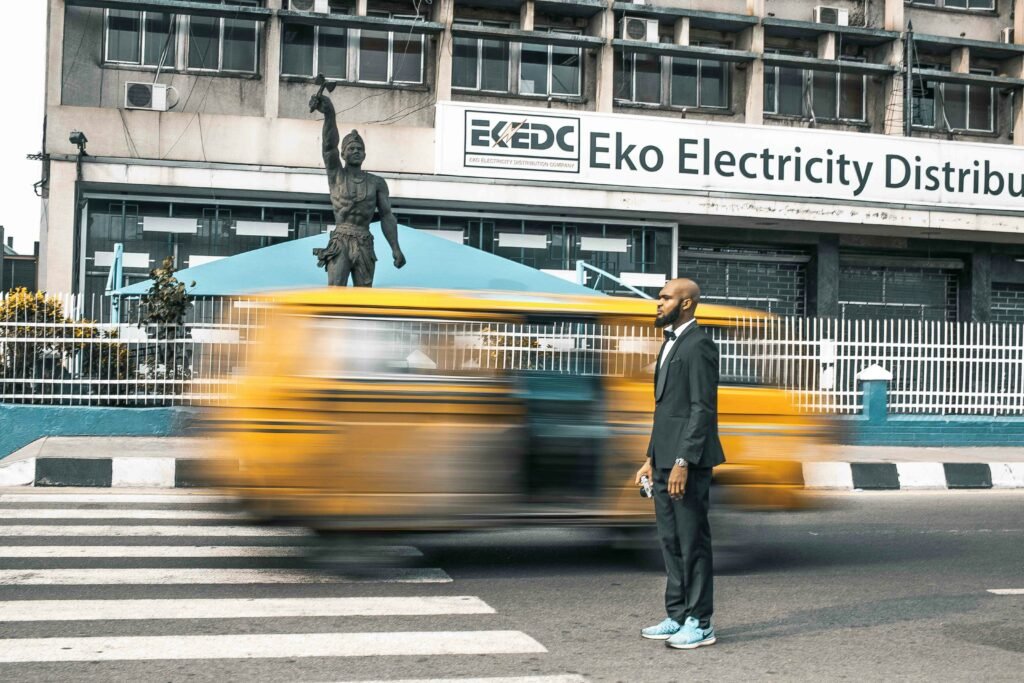
Rationale Behind the Policy Shift
- Security and Immigration Integrity: The U.S. government stated the changes are intended to safeguard the immigration system and meet global security standards.
- Diplomatic Reciprocity: These restrictions mirror the limitations Nigeria imposes on U.S. travelers, emphasizing the principle of fairness in international visa agreements.
- Potential for Further Action: The U.S. has indicated that additional travel restrictions could be introduced if Nigeria does not address certain diplomatic and security concerns.

Nigeria’s Updated Visa Policy
- Nigeria Visa Policy 2025 (NVP 2025): Introduced in May 2025, this policy features a new e-Visa system for short visits and reorganizes visa categories:
- Short Visit Visas (e-Visa): For business or tourism, valid up to three months, non-renewable, processed digitally within 48 hours.
- Temporary Residence Visas: For employment or study, valid up to two years.
- Permanent Residence Visas: For investors, retirees, and highly skilled individuals.
- Visa Exemptions: ECOWAS citizens and certain diplomatic passport holders remain exempt.
- Reciprocal Restrictions: Most short-stay and business visas for U.S. citizens are single-entry and short-term, reflecting reciprocal treatment.

Impact on Travelers and Bilateral Relations
- Nigerian Travelers: Face increased administrative requirements, higher costs, and reduced travel flexibility to the U.S.
- U.S. Travelers to Nigeria: Encounter similar restrictions, with most visas limited to single entry and short duration.
- Diplomatic Tensions: Nigerian officials have called for reconsideration of the U.S. policy, warning of negative effects on bilateral ties and people-to-people exchanges.
Conclusion
The U.S. decision to limit Nigerian non-immigrant visas to three months highlights the growing complexity and reciprocity in global visa regimes. Both countries are tightening their policies, citing security and fairness, which underscores the need for travelers and businesses to stay informed and adapt to evolving requirements.
Business
Nicki Minaj Demands $200 Million from Jay-Z in Explosive Twitter Rant
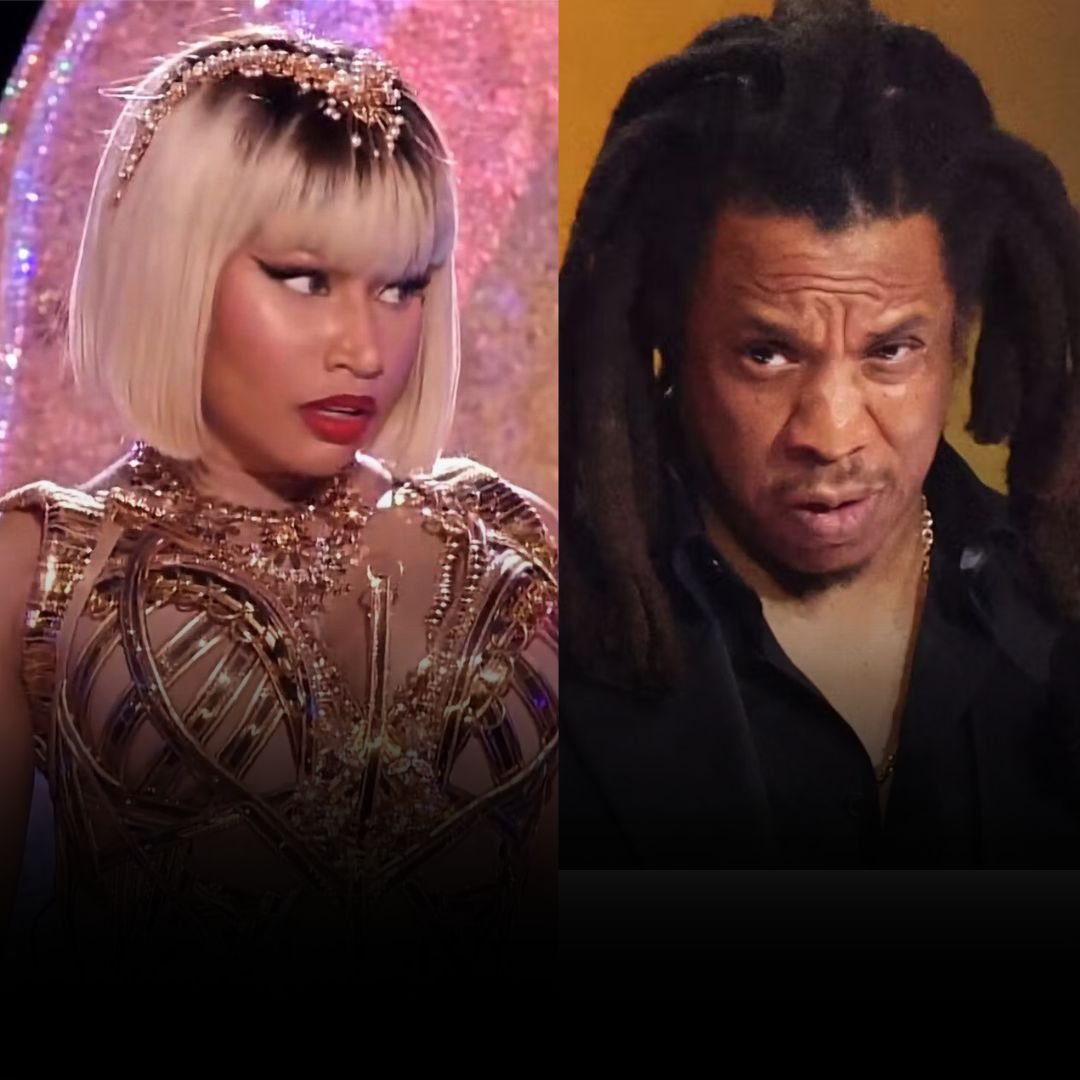
Nicki Minaj has once again set social media ablaze, this time targeting Jay-Z with a series of pointed tweets that allege he owes her an eye-popping $200 million. The outburst has reignited debates about artist compensation, industry transparency, and the ongoing power struggles within hip-hop’s elite circles.

The $200 Million Claim
In a string of tweets, Minaj directly addressed Jay-Z, writing, “Jay-Z, call me to settle the karmic debt. It’s only collecting more interest. You still in my top five though. Let’s get it.” She went further, warning, “Anyone still calling him Hov will answer to God for the blasphemy.” According to Minaj, the alleged debt stems from Jay-Z’s sale of Tidal, the music streaming platform he launched in 2015 with a group of high-profile artists—including Minaj herself, J. Cole, and Rihanna.
When Jay-Z sold Tidal in 2021, Minaj claims she was only offered $1 million, a figure she says falls dramatically short of what she believes she is owed based on her ownership stake and contributions. She has long voiced dissatisfaction with the payout, but this is the most public—and dramatic—demand to date.
Beyond the Money: Broader Grievances
Minaj’s Twitter storm wasn’t limited to financial complaints. She also:
- Promised to start a college fund for her fans if she receives the money she claims is owed.
- Accused blogs and online creators of ignoring her side of the story, especially when it involves Jay-Z.
- Warned content creators about posting “hate or lies,” saying, “They won’t cover your legal fees… I hope it’s worth losing everything including your account.”
She expressed frustration that mainstream blogs and platforms don’t fully cover her statements, especially when they involve Jay-Z, and suggested that much of the coverage she receives is from less reputable sources.
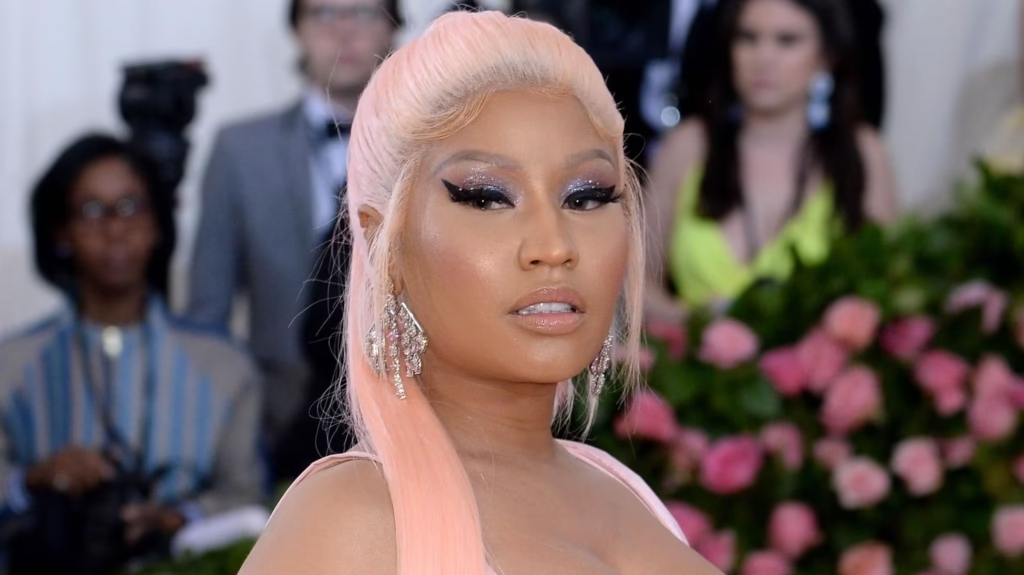
Satirical Accusations and Industry Critique
Minaj’s tweets took a satirical turn as she jokingly blamed Jay-Z for a laundry list of cultural grievances, including:
- The state of hip-hop, football, basketball, and touring
- The decline of Instagram and Twitter
- Even processed foods and artificial dyes in candy
She repeatedly declared, “The jig is up,” but clarified that her statements were “alleged and for entertainment purposes only.”
Political and Cultural Criticism
Minaj also criticized Jay-Z’s political involvement, questioning why he didn’t campaign more actively for Kamala Harris or respond to President Obama’s comments about Black men. While Jay-Z has a history of supporting Democratic campaigns, Minaj’s critique centered on more recent events and what she perceives as a lack of advocacy for the Black community.
The Super Bowl and Lil Wayne
Adding another layer to her grievances, Minaj voiced disappointment that Lil Wayne was not chosen to perform at the Super Bowl in New Orleans, a decision she attributes to Jay-Z’s influence in the entertainment industry.
Public and Industry Reaction
Despite the seriousness of her financial claim, many observers note that if Minaj truly believed Jay-Z owed her $200 million, legal action—not social media—would likely follow. As of now, there is no public record of a lawsuit or formal complaint.
Some fans and commentators see Minaj’s outburst as part of a larger pattern of airing industry grievances online, while others interpret it as a mix of personal frustration and performance art. Minaj herself emphasized that her tweets were “for entertainment purposes only.”
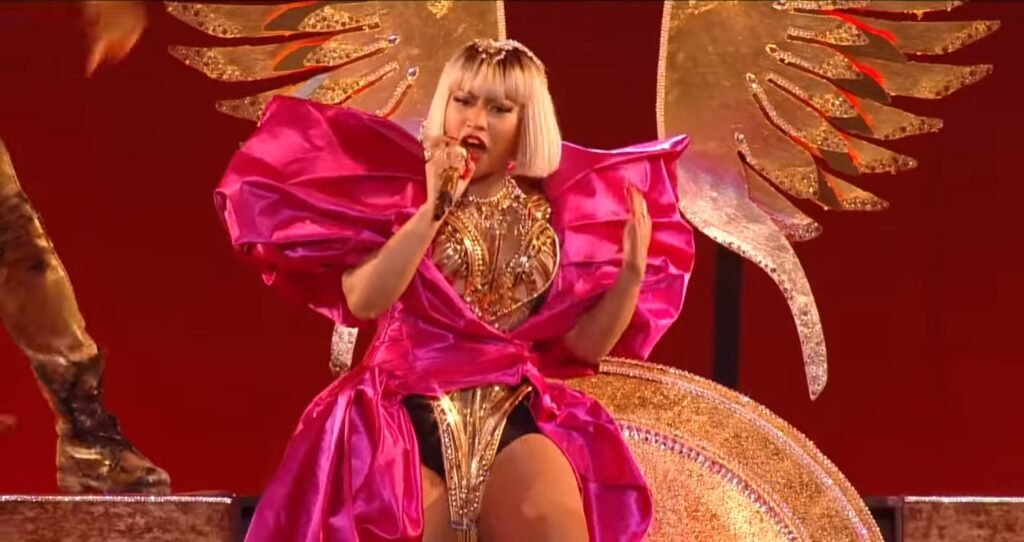
Conclusion
Nicki Minaj’s explosive Twitter rant against Jay-Z has once again placed the spotlight on issues of artist compensation and industry dynamics. Whether her claims will lead to further action or remain another dramatic chapter in hip-hop’s ongoing soap opera remains to be seen, but for now, the world is watching—and tweeting.

 Business2 weeks ago
Business2 weeks agoPros and Cons of the Big Beautiful Bill

 Advice3 weeks ago
Advice3 weeks agoWhat SXSW 2025 Filmmakers Want Every New Director to Know

 Film Industry4 weeks ago
Film Industry4 weeks agoFilming Yourself and Look Cinematic

 News2 weeks ago
News2 weeks agoFather Leaps Overboard to Save Daughter on Disney Dream Cruise

 Health2 weeks ago
Health2 weeks agoMcCullough Alleges Government Hid COVID Vaccine Side Effects

 Advice3 weeks ago
Advice3 weeks agoWhy 20% of Us Are Always Late

 Advice3 weeks ago
Advice3 weeks agoHow to Find Your Voice as a Filmmaker

 Entertainment2 weeks ago
Entertainment2 weeks agoJuror 25’s Behavior Sparks Debate Over Fairness in High-Profile Diddy Trial





























dyskont online
March 27, 2024 at 2:47 am
I see You’re actually a good webmaster. This site loading speed is incredible.
It seems that you are doing any unique trick. Moreover, the
contents are masterwork. you’ve performed a wonderful task in this subject!
Similar here: zakupy online and
also here: Najtańszy sklep
Backlink Building
April 4, 2024 at 2:03 pm
Hi there! Do you know if they make any plugins to help
with SEO? I’m trying to get my blog to rank for some targeted keywords but I’m not seeing very good gains.
If you know of any please share. Thank you! You can read similar art here: Backlink Building